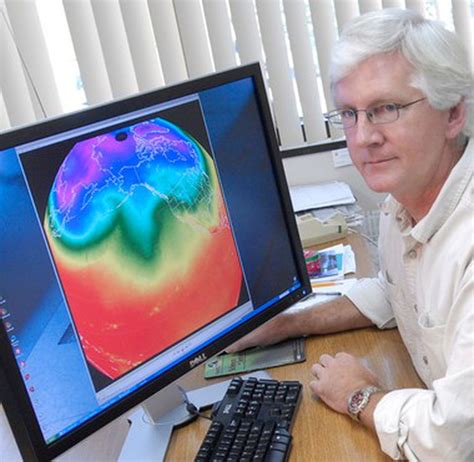A Quote by Al Gore
Researchers at the Naval Postgraduate School have told us that the entire Arctic ice cap may totally disappear in summer in as little as five years if nothing is done to curb emissions of greenhouse gas pollution.
Related Quotes
CO2 is a minor player in the total system, and human CO2 emissions are insignificant compared to total natural greenhouse gas emissions. Therefore, lowering human CO2 emissions will have no measurable effect on climate, and continued CO2 emissions will have little or no effect on future temperature....While controlling CO2 emissions from burning fossil fuels may have some beneficial effects on air quality, it will have no measurable effect on climate, but great detrimental effects on the economy and our standard of living.
Health care in the United States is responsible for a tremendous amount of waste and a significant amount of greenhouse gas emissions. For every hospital bed, the American health care system produces about 30 pounds of waste every day; over all, it accounts for about 10 percent of national greenhouse gas emissions.
'Scientific' computer simulations predict global warming based on increased greenhouse gas emissions over time. However, without water's contribution taken into account they omit the largest greenhouse gas from their equations. How can such egregious calculation errors be so blatantly ignored? This is why man-made global warming is 'junk' science.
































